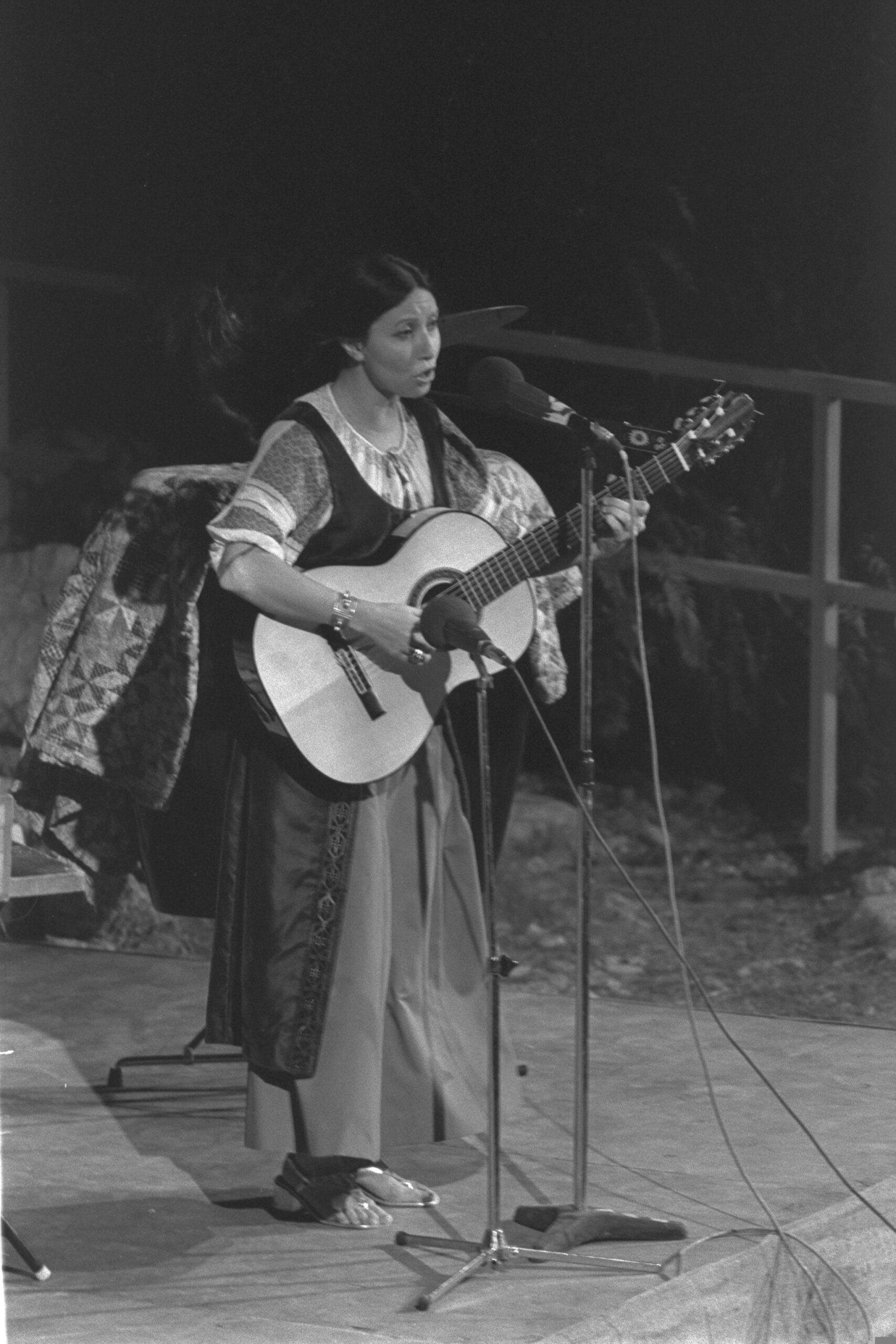“Jerusalem of Gold” Premieres at Israel Song Festival

May 15, 1967
The Voice of Israel Song Festival was created in 1960 as part of Israel’s Independence Day celebration and as an opportunity to showcase Israel’s emerging culture. In its early years, the festival was mostly shunned by established musicians and composers who did not approve of the competitive nature of the event.
Before and during the 1967 festival, international tensions were growing on Israel’s borders. In preparation for the festival, Jerusalem Mayor Teddy Kollek commissioned five songs about Jerusalem. The five songs were to be presented as part of the non-competitive portion of the event, and performed while the judges counted votes.
Naomi Shemer, already one of Israel’s most accomplished songwriters, was asked to compose a song.
Shemer recalled,
After two months of trying in vain I decided to give up. I called Gil [Gil Aldema, the producer of the festival] and asked him to release me: “It’s too big for me. I simply can’t write about Jerusalem.” And Gil, wise man and teacher that he was, said, “Don’t write about Jerusalem. Forget about it and write whatever you want, but don’t leave us without a song for the festival.” When he put down the receiver, he told the people in his office, “Now she will write about Jerusalem.” And that’s what happened.
I wrote ‘Jerusalem of Gold’ that same night. The idea I started with was the Talmudic legend I remembered from my school days about Rabbi Akiva, who lived in poverty, in a hayloft with his beloved wife Rahel, who had been disowned by her father. As he plucked the hay out of her hair, he promised her that one day he would become wealthy and buy her a Jerusalem of Gold [an item of jewelry]…The phrase “Jerusalem of Gold” suddenly shone in my memory as if to say, “Here I am,” and I realized it would be the cornerstone of my song. (Nathan Shahar, Naomi Shemer, Jewish Women’s Archive, http://jwa.org/encyclopedia/article/shemer-naomi)
The song was the hit of the festival and overshadowed the contest winner, Mi Yodea Kama (Who Knows How Much). Three weeks after the June 1967 war, Shemer added another stanza, emphasizing the return of all of Jerusalem to Israeli control. Yerushalayim shel Zahav then became the country’s most popular song.